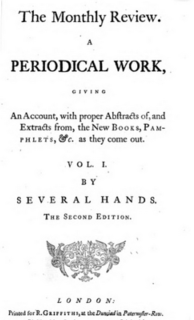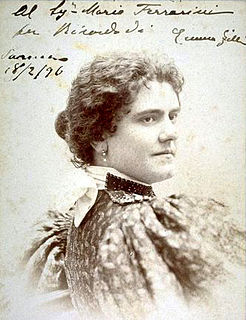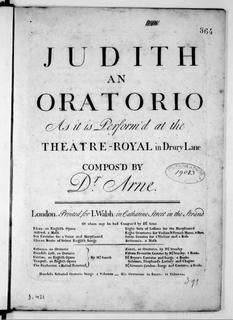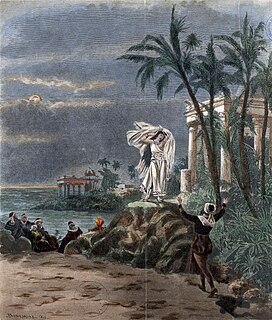This article relies largely or entirely on a single source .(August 2014) |
Leucothoé is a 1756 dramatic poem by the Irish playwright Isaac Bickerstaff. It was Bickerstaff's first published work. The plot was based on the story of the Greek Goddess Leucothea.

Drama is the specific mode of fiction represented in performance: a play, opera, mime, ballet, etc, performed in a theatre, or on radio or television. Considered as a genre of poetry in general, the dramatic mode has been contrasted with the epic and the lyrical modes ever since Aristotle's Poetics —the earliest work of dramatic theory.

The Kingdom of Ireland was a client state of England and then of Great Britain that existed from 1542 until 1800. It was ruled by the monarchs of England and then of Great Britain in personal union with their other realms. The kingdom was administered from Dublin Castle nominally by the King or Queen, who appointed a viceroy to rule in their stead. It had its own legislature, peerage, legal system, and state church.
Isaac Bickerstaffe or Bickerstaff was an Irish playwright and Librettist.
Leucothoé was originally intended to be a pastoral opera but Bickerstaff was unable to secure a composer to set it to music. In May 1756 it was published by Robert Dodsley at the price of 1 shilling and sixpence. [1]

A pastoral lifestyle is that of shepherds herding livestock around open areas of land according to seasons and the changing availability of water and pasture. It lends its name to a genre of literature, art, and music that depicts such life in an idealized manner, typically for urban audiences. A pastoral is a work of this genre, also known as bucolic, from the Greek βουκολικόν, from βουκόλος, meaning a cowherd.

Opera is a form of theatre in which music has a leading role and the parts are taken by singers, but is distinct from musical theater. Such a "work" is typically a collaboration between a composer and a librettist and incorporates a number of the performing arts, such as acting, scenery, costume, and sometimes dance or ballet. The performance is typically given in an opera house, accompanied by an orchestra or smaller musical ensemble, which since the early 19th century has been led by a conductor.

Robert Dodsley was an English bookseller, poet, playwright, and miscellaneous writer.
In a contemporary review in the Monthly Review , critic Ralph Griffiths generally praised the work, although he criticised the tragic ending, as "the laws of the Opera require a happy ending". [2] While well received by the limited critics who reviewed it, the work was largely ignored both by critics and the public. This failure led Bickerstaff to rejoin the military, although he went on to have a string of successes between 1760 and 1772 often in collaboration with the composer Thomas Arne.

The Monthly Review (1749–1845) was an English periodical founded by Ralph Griffiths, a Nonconformist bookseller. The first periodical in England to offer reviews, it featured the novelist and poet Oliver Goldsmith as an early contributor. Griffiths himself, and likely his wife Isabella Griffiths, contributed review articles to the periodical. Later contributors included Dr. Charles Burney, John Cleland, Theophilus Cibber, James Grainger, Anna Letitia Barbauld, Elizabeth Moody, and Tobias Smollett—who would go on to establish the Monthly's competitor in 1756, The Critical Review. William Kenrick, the "superlative scoundrel", was editor from 1759 to 1766.

Ralph Griffiths was an English journal editor and publisher of Welsh extraction. In 1749, he founded London’s first successful literary magazine, the Monthly Review (1749–1845), and remained its editor until his death in 1803.

Tragedy is a form of drama based on human suffering that invokes an accompanying catharsis or pleasure in audiences. While many cultures have developed forms that provoke this paradoxical response, the term tragedy often refers to a specific tradition of drama that has played a unique and important role historically in the self-definition of Western civilisation. That tradition has been multiple and discontinuous, yet the term has often been used to invoke a powerful effect of cultural identity and historical continuity—"the Greeks and the Elizabethans, in one cultural form; Hellenes and Christians, in a common activity," as Raymond Williams puts it.











